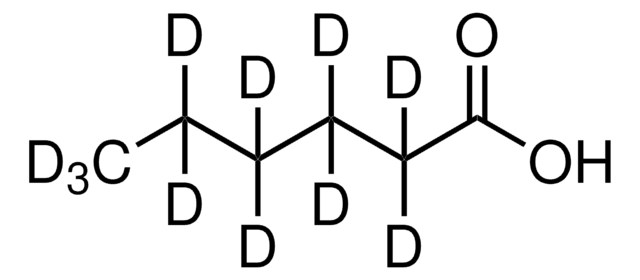733490
Antimony(III) telluride
powder, −325 mesh, 99.96% trace metals basis
Synonym(s):
Antimony sesquitelluride, Antimony telluride, Diantimony tritelluride
About This Item
Recommended Products
Quality Level
Assay
99.96% trace metals basis
form
powder
greener alternative product characteristics
Design for Energy Efficiency
Learn more about the Principles of Green Chemistry.
sustainability
Greener Alternative Product
particle size
−325 mesh
mp
629 °C
density
6.5 g/mL at 25 °C (lit.)
greener alternative category
, Enabling
SMILES string
[Te]=[Sb][Te][Sb]=[Te]
InChI
1S/2Sb.3Te
InChI key
BPDQXJZWVBPDSN-UHFFFAOYSA-N
Looking for similar products? Visit Product Comparison Guide
Related Categories
General description
Application
Signal Word
Warning
Hazard Statements
Precautionary Statements
Hazard Classifications
Acute Tox. 4 Inhalation - Acute Tox. 4 Oral - Aquatic Chronic 2
Storage Class Code
13 - Non Combustible Solids
WGK
WGK 3
Flash Point(F)
Not applicable
Flash Point(C)
Not applicable
Choose from one of the most recent versions:
Certificates of Analysis (COA)
Don't see the Right Version?
If you require a particular version, you can look up a specific certificate by the Lot or Batch number.
Already Own This Product?
Find documentation for the products that you have recently purchased in the Document Library.
Articles
Thermoelectric materials comprise a wide range of solid compounds distinguished by their ability to convert thermal and electrical energy.
Higher transition metal silicides are ideal for anisotropic thermoelectric conversion due to their Seebeck coefficient anisotropy and mechanical properties.
Higher transition metal silicides are ideal for anisotropic thermoelectric conversion due to their Seebeck coefficient anisotropy and mechanical properties.
Higher transition metal silicides are ideal for anisotropic thermoelectric conversion due to their Seebeck coefficient anisotropy and mechanical properties.
Our team of scientists has experience in all areas of research including Life Science, Material Science, Chemical Synthesis, Chromatography, Analytical and many others.
Contact Technical Service










